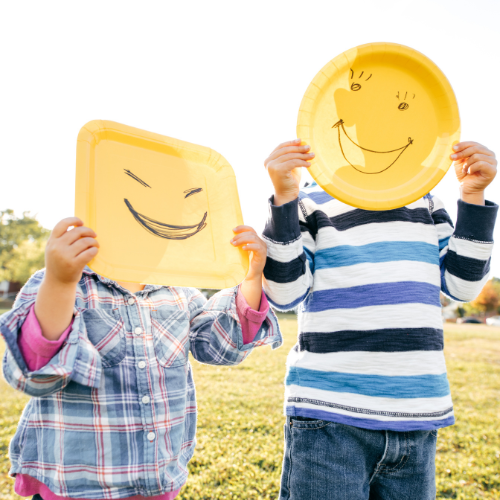"It's not fair!!"
"I hate you."
"Mama... she took my toy."
Loud sobs echo throughout the house... sounds familiar? Even the best sibling relationships have their fair share of ups and downs.
Unlike friends, siblings don’t get to choose each other.
- They happen to be born or brought up in the same family.
- They may look completely different from each other.
- Their interests and personalities may not be similar.
- They may be of different ages and genders.
And yet, their sibling is the person that they spend the most amount of time with during their childhood. And they all want the same thing— their parents' complete and undivided attention.
So, how can we promote and support sibling love?
1. Celebrate their differences. Avoid comparisons. We are all born different. Whether it's our personalities, interests or even how we look, eat or act. Our differences make us unique and special. When we compare siblings, it impacts their self-confidence. Instead of saying, "Why can't you be more like your brother?" Try saying, "I love that you think differently. Tell me what you think about..."
2. Family values matter. Decide what values are important to your family and ensure that all members of the family demonstrate it. "In our family, we value kindness. So, we don't call our sister names. That isn't kind. In our family, we help each other out."
3. Taking Turns. Teach them not just to take turns but also to wait patiently for their turn. Most little ones are good at telling someone else to wait for their turn. They aren't as good at patiently waiting for theirs. This takes practice. "Now, it's your turn. I will play next."
4. Appreciate kindness when displayed. While calling out unkindness is important, ensure you notice and appreciate your little one's attempt at kindness. "I noticed you held the door for your brother. That was kind of you."
5. One-on-one time. Meeting the needs of a large family can be challenging. But, scheduling a little individual time with each of your little ones makes a huge difference to the whole family unit. "Let's do a puzzle today while your baby brother takes a nap. It's been a while and I love spending time with you."
6. Encourage 'Play by myself' time. We all need a little space from each other. With different needs and interests, it's healthy for your little ones to experience a little 'play by myself' time. They learn to occupy themselves without being entertained. And the younger ones learn that they don't always have to do what the older one does.
7. Help them resolve their own differences. But, give them the tools to do so. Our little ones need phrases to help them communicate their emotions. "Stop it, I don't like it." "Let's take turns." "That was not a kind thing to say." "I'm sorry I hurt your feelings."
8. Encourage teamwork. Give them games, chores or projects to do together. When our little ones play together, they learn from each other. They learn to put themselves in the other person's shoes. They learn to help, take turns, listen and communicate. It develops their understanding of each other. "Adam and I did the puzzle together. He found all the corner pieces and I found the middle ones."
9. Whole family fun. By involving the whole family in Friday night games, movie nights or evenings out at the park, we model how different people across ages, genders and interests can come together and have fun. Our little ones learn how to include others in their play from us.
10. Meet their individual needs. Just as we ensure a nut-free diet for our little one who is prone to allergies, we must cater to their individual social and emotional needs or personalities. One of them may like large groups, the other may be more comfortable in small and familiar surroundings. One embraces change while the other is more cautious. By taking the time to understand their individual needs, we ensure that they grow up self-assured and comfortable in their own skin. "I know you don't like large groups. Do you want to hold my hand till you feel a bit more comfortable?"
Try and keep these simple tips in mind and you'll ensure that the childhood bonds your little ones create with each other will last a lifetime!
Follow @indigrowkids for more play and conversation about raising kids in a multicultural world. Head to https://indigrowkids.com/ for more!


Leave a comment